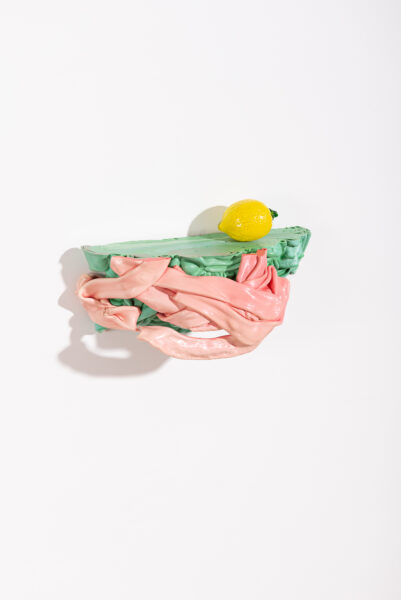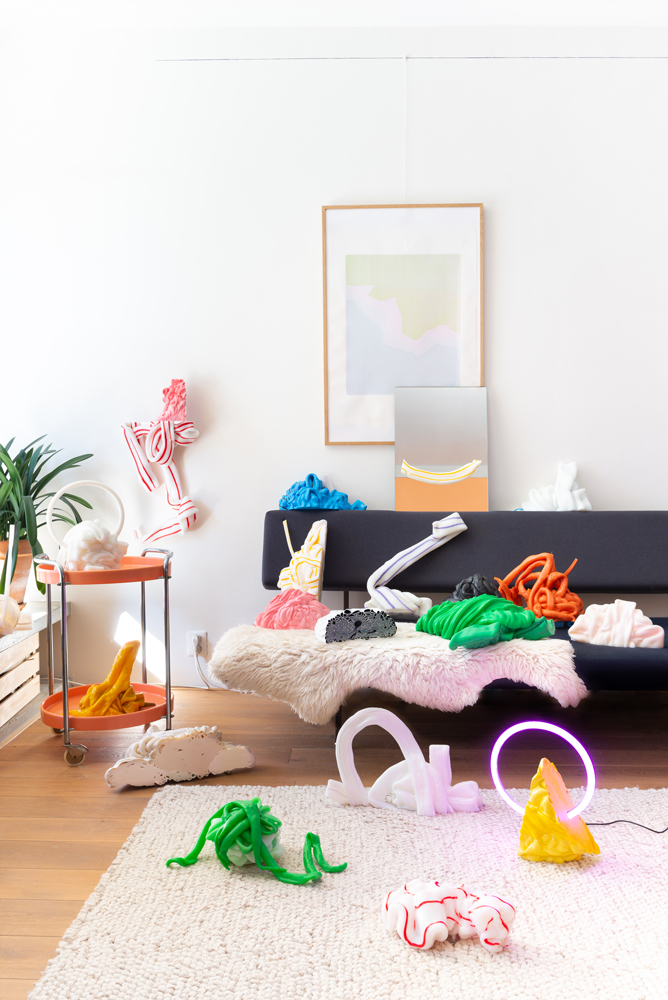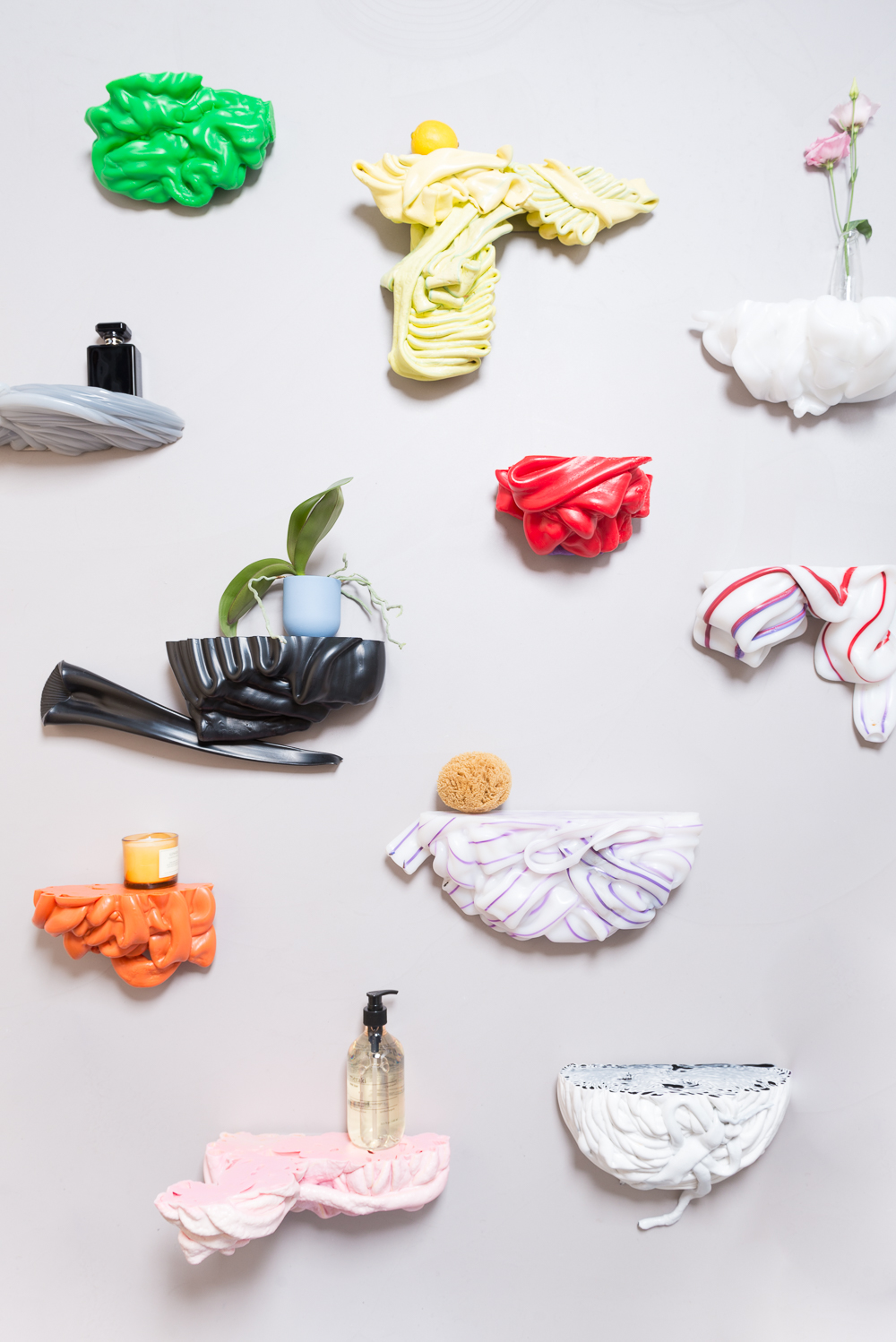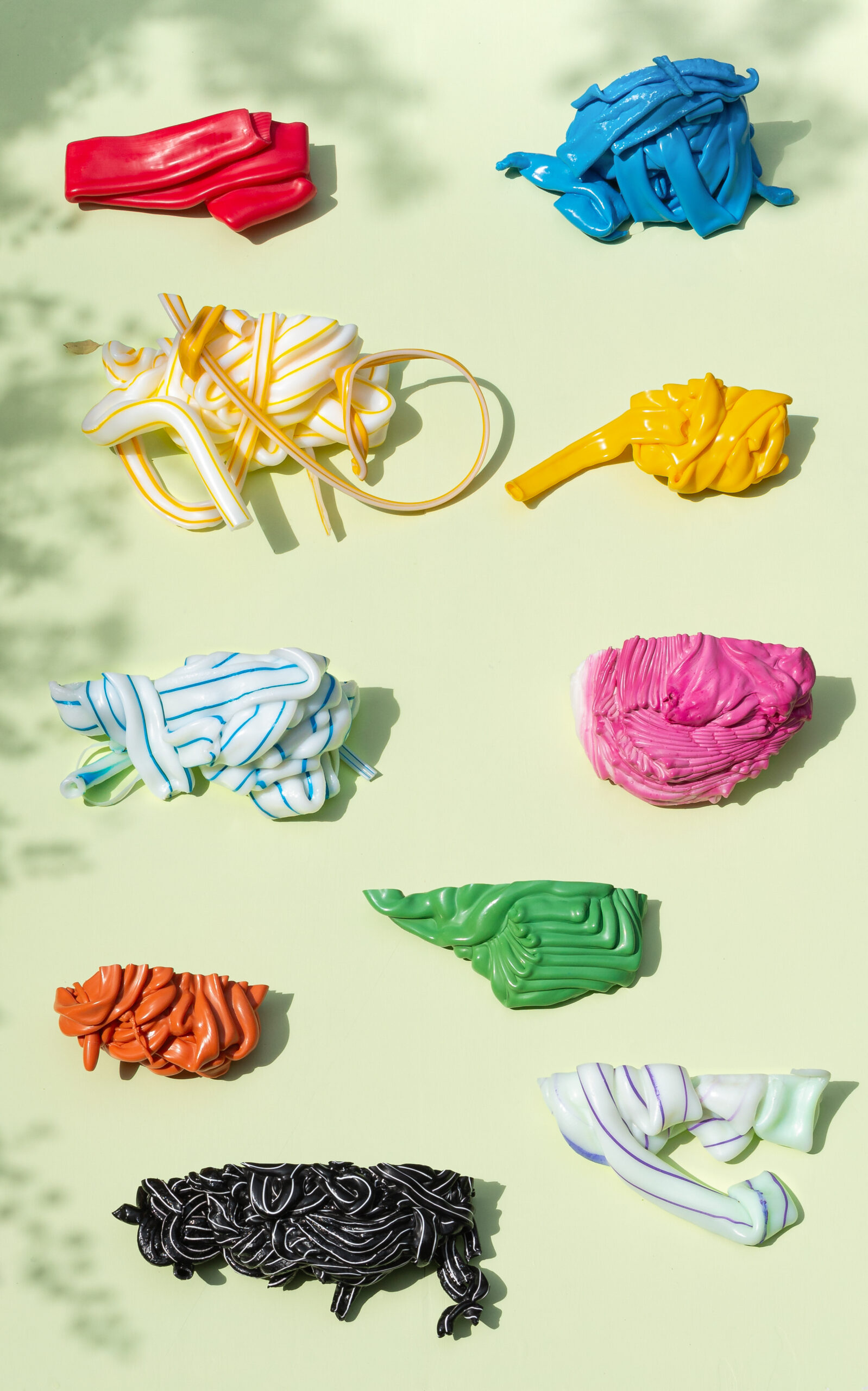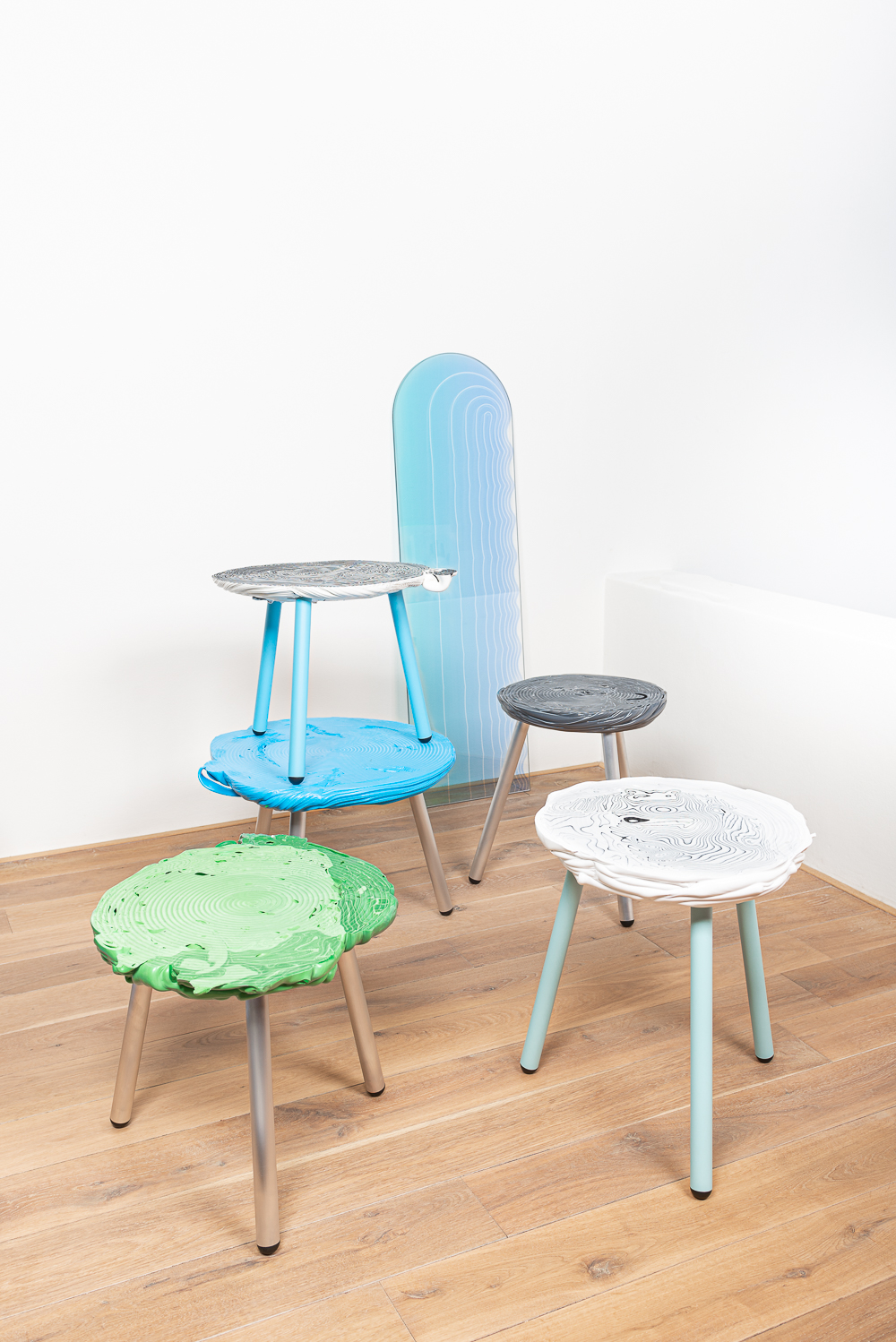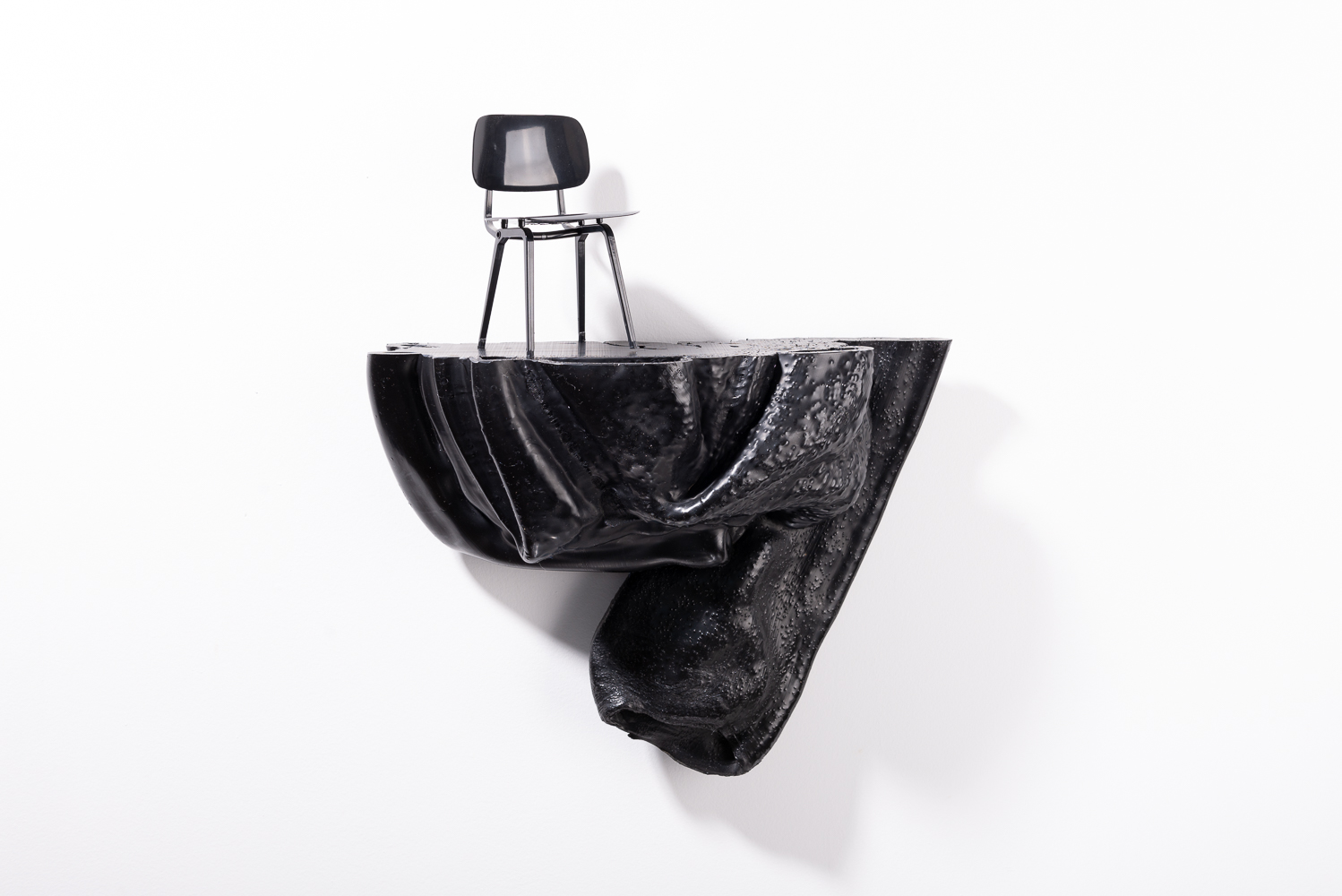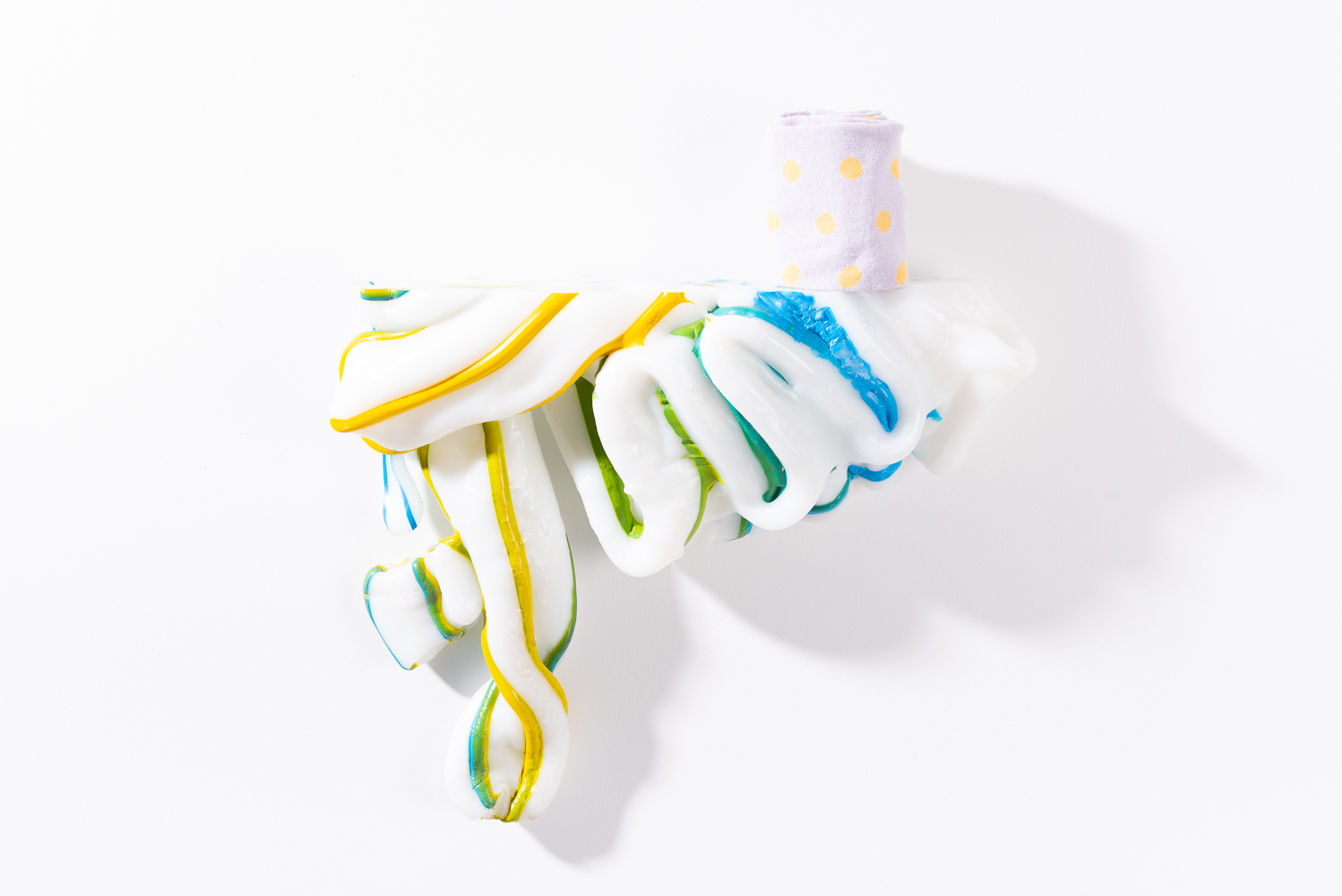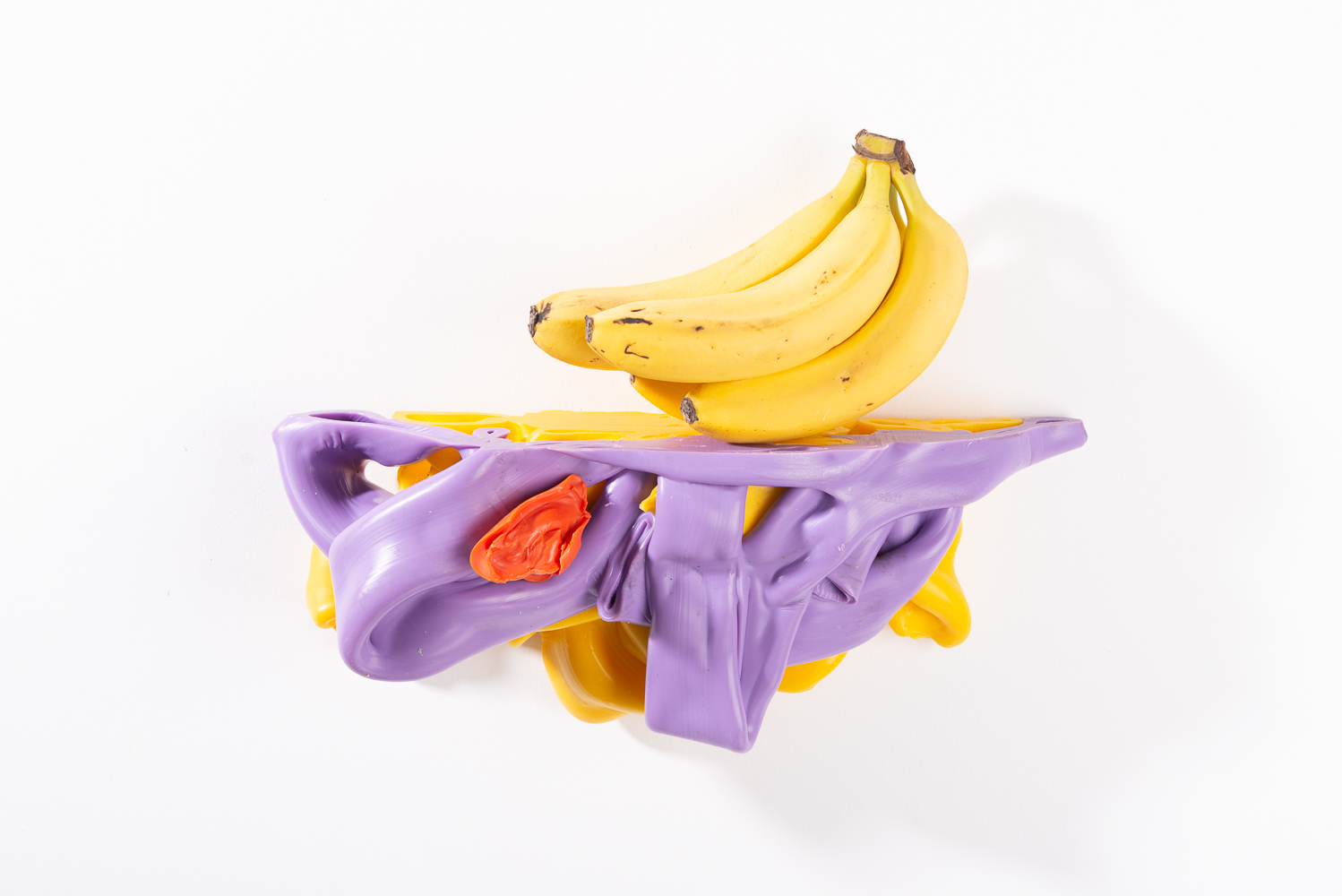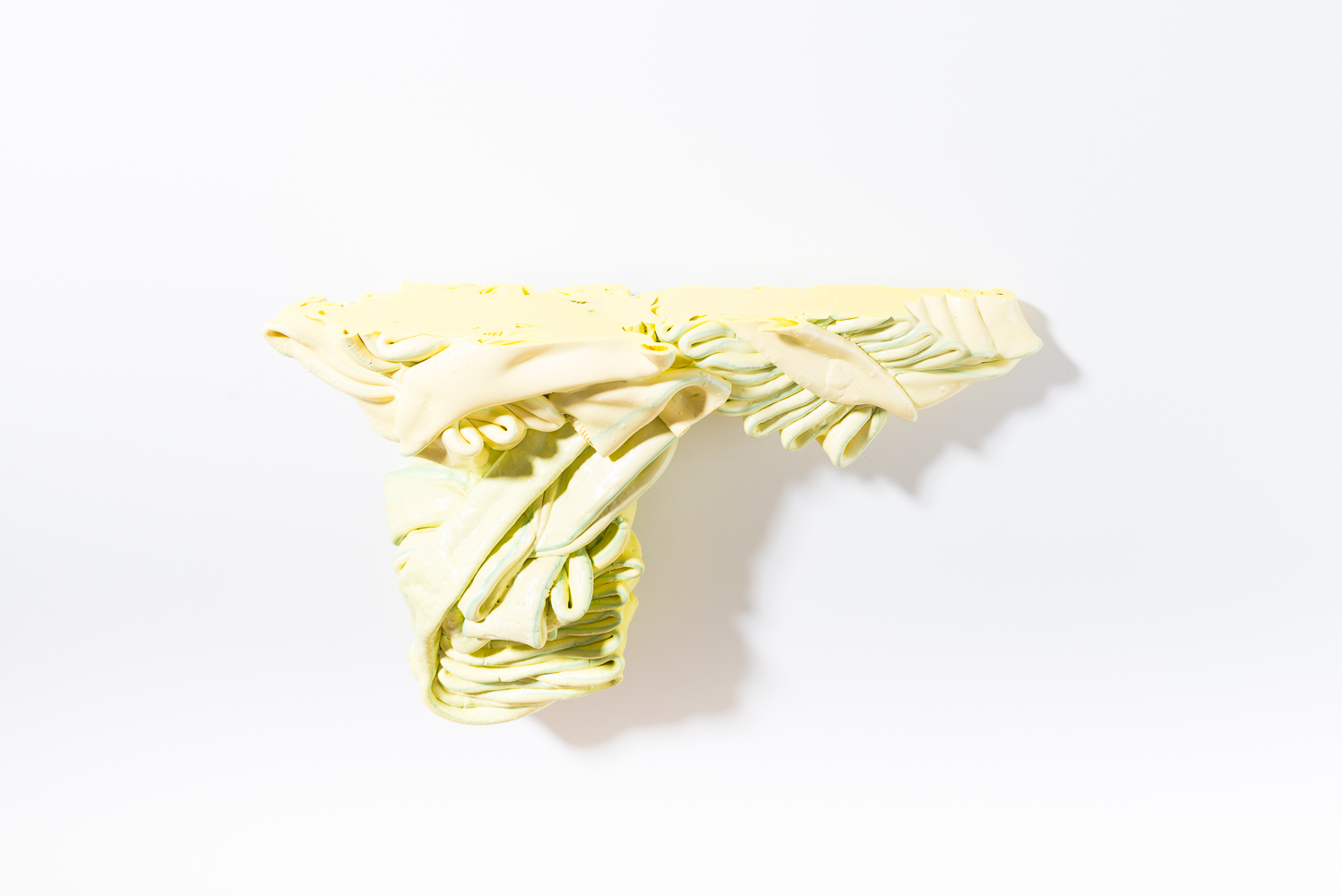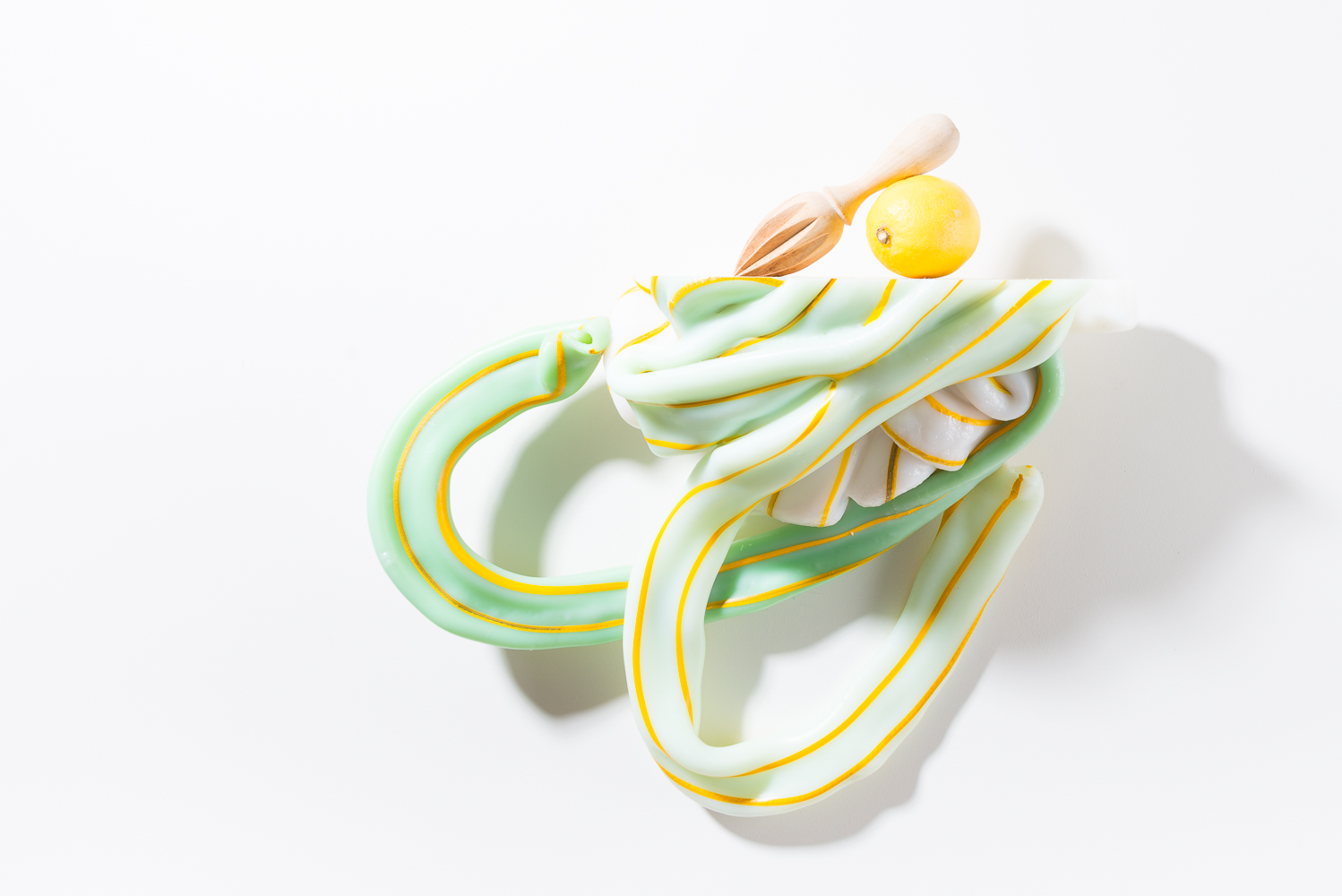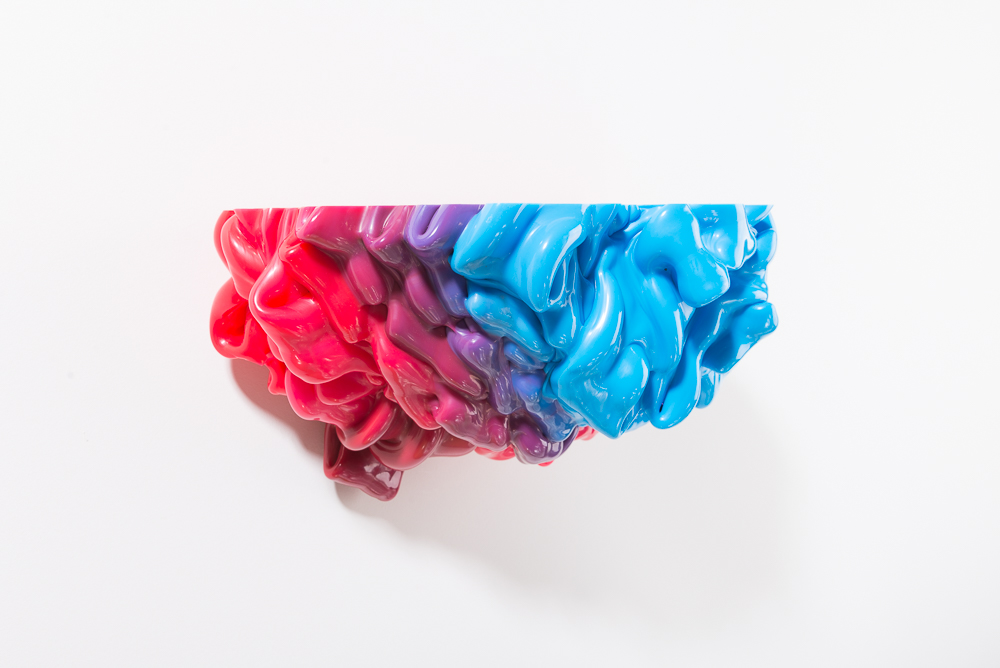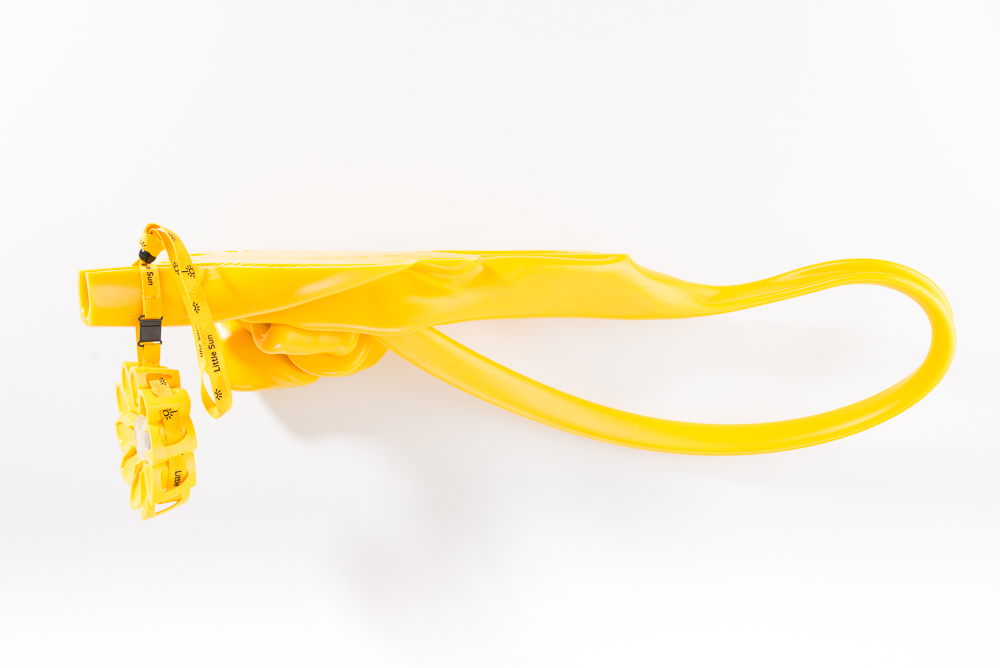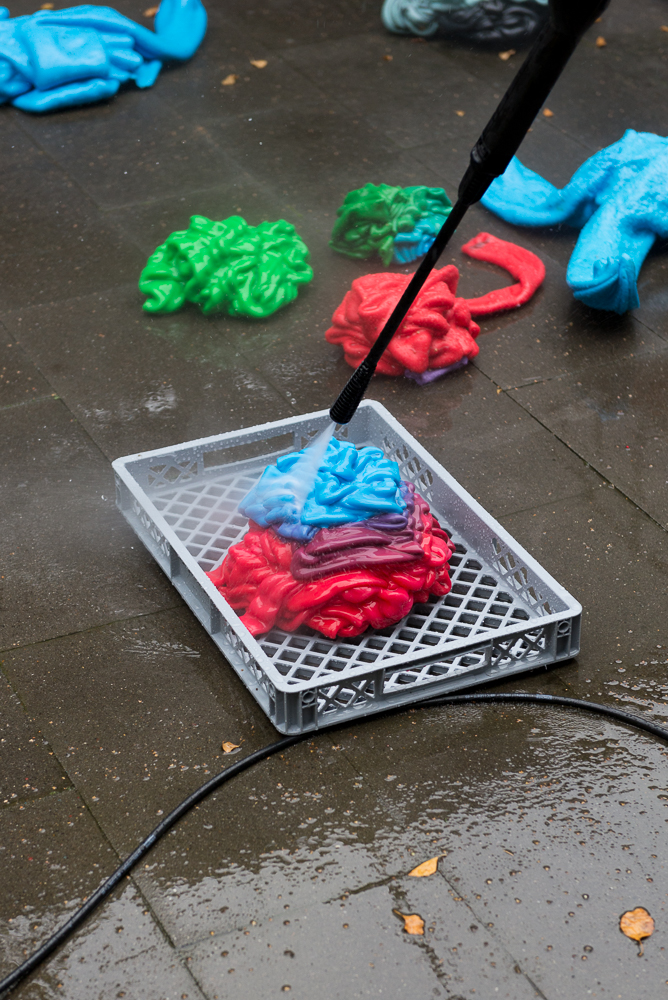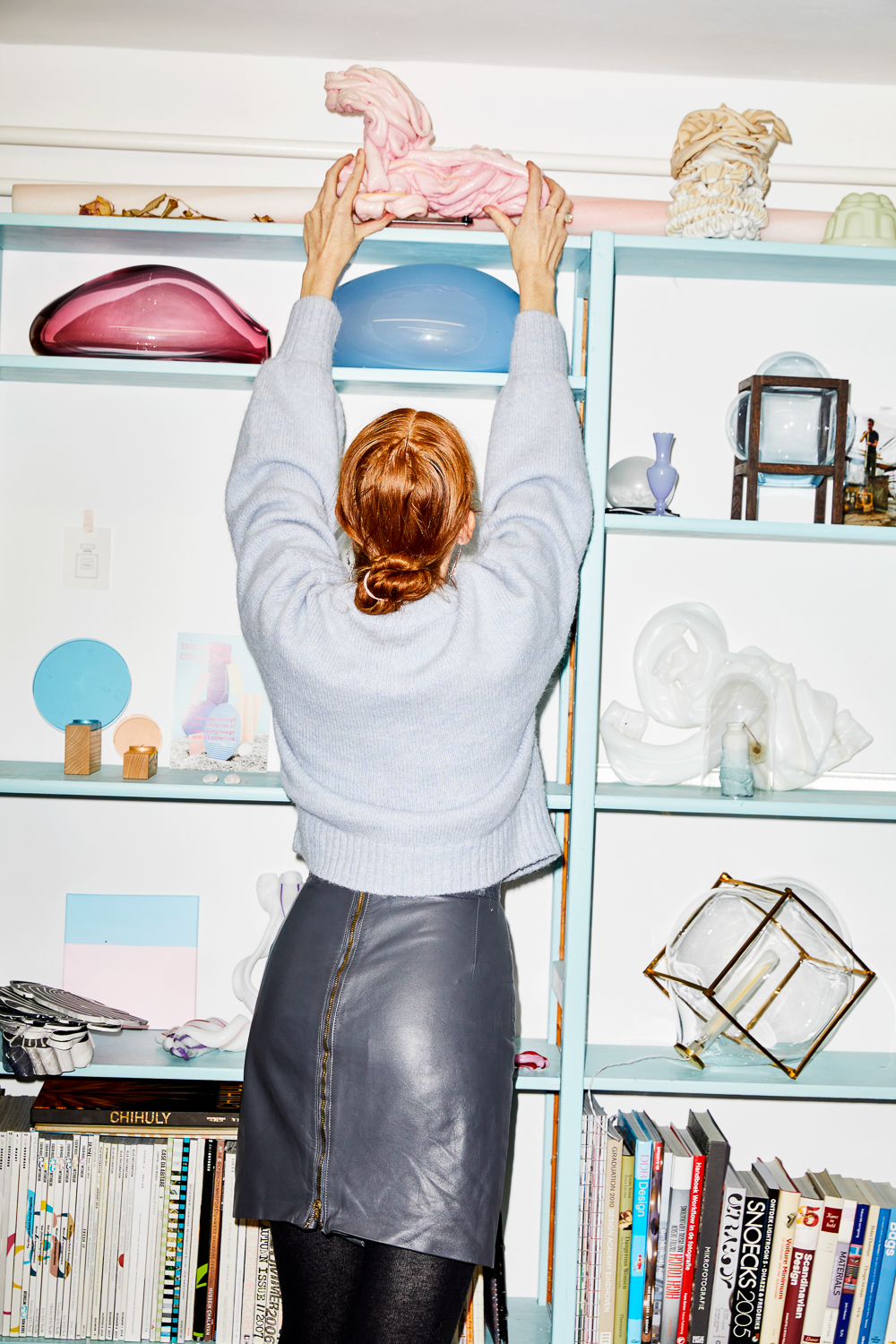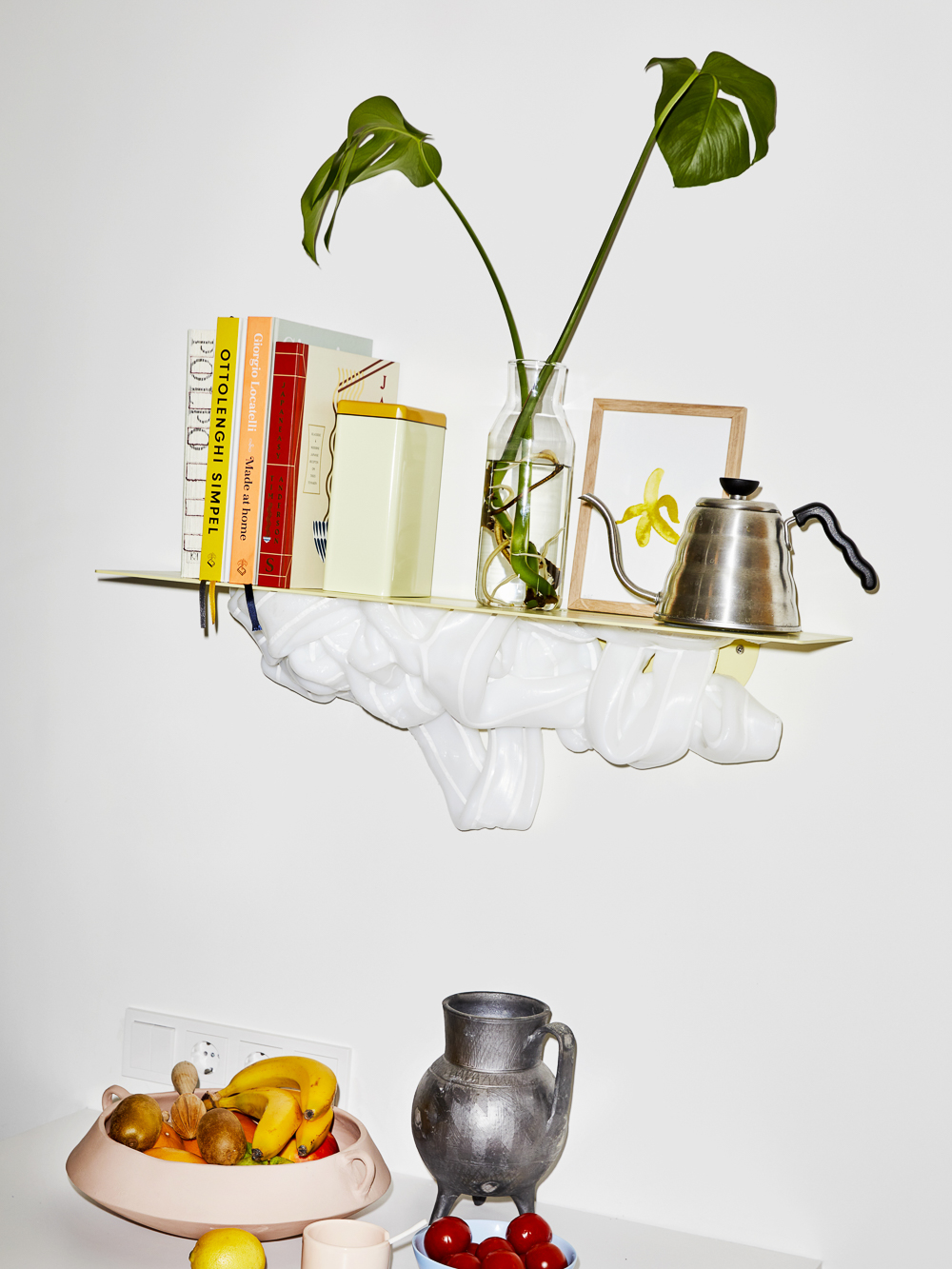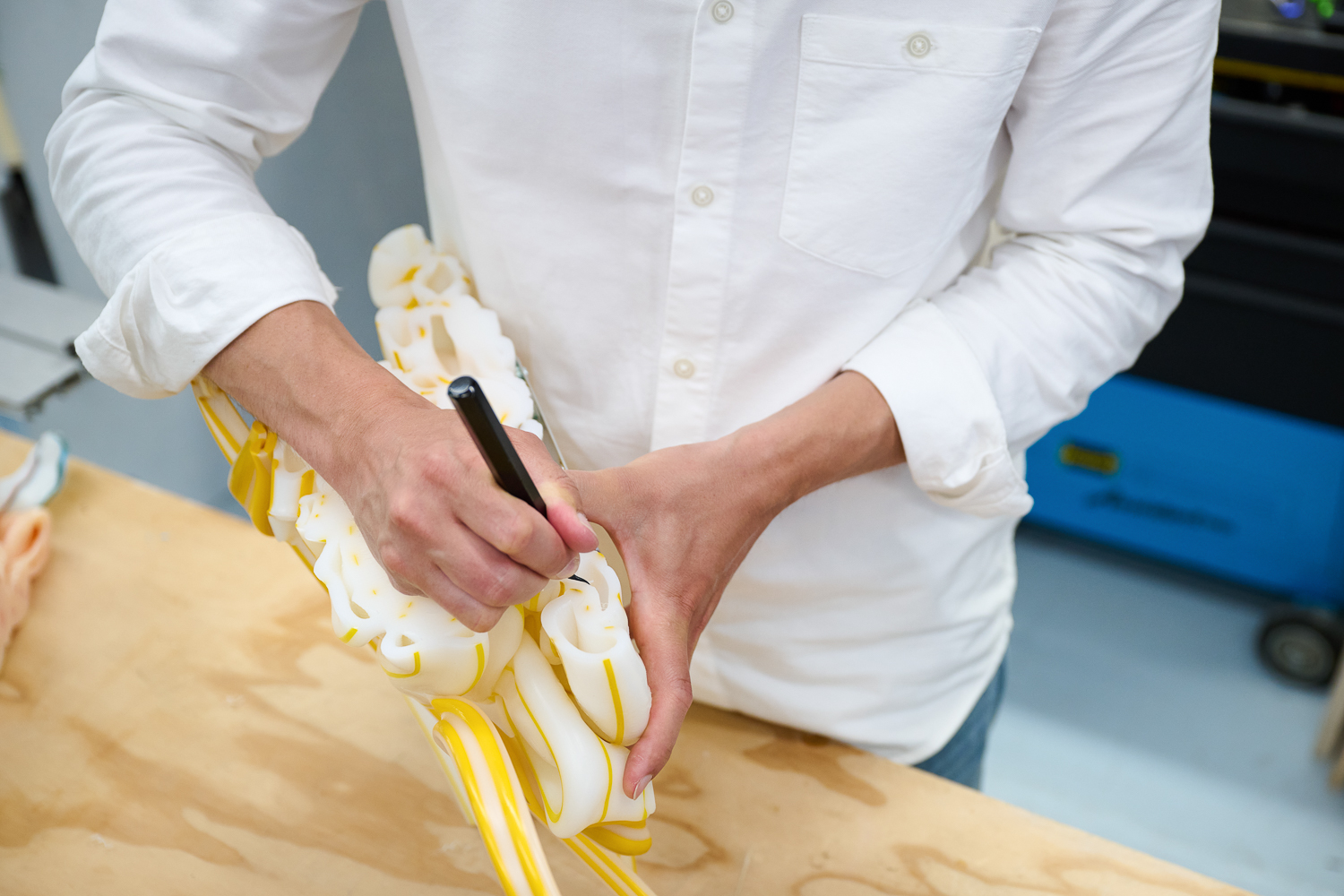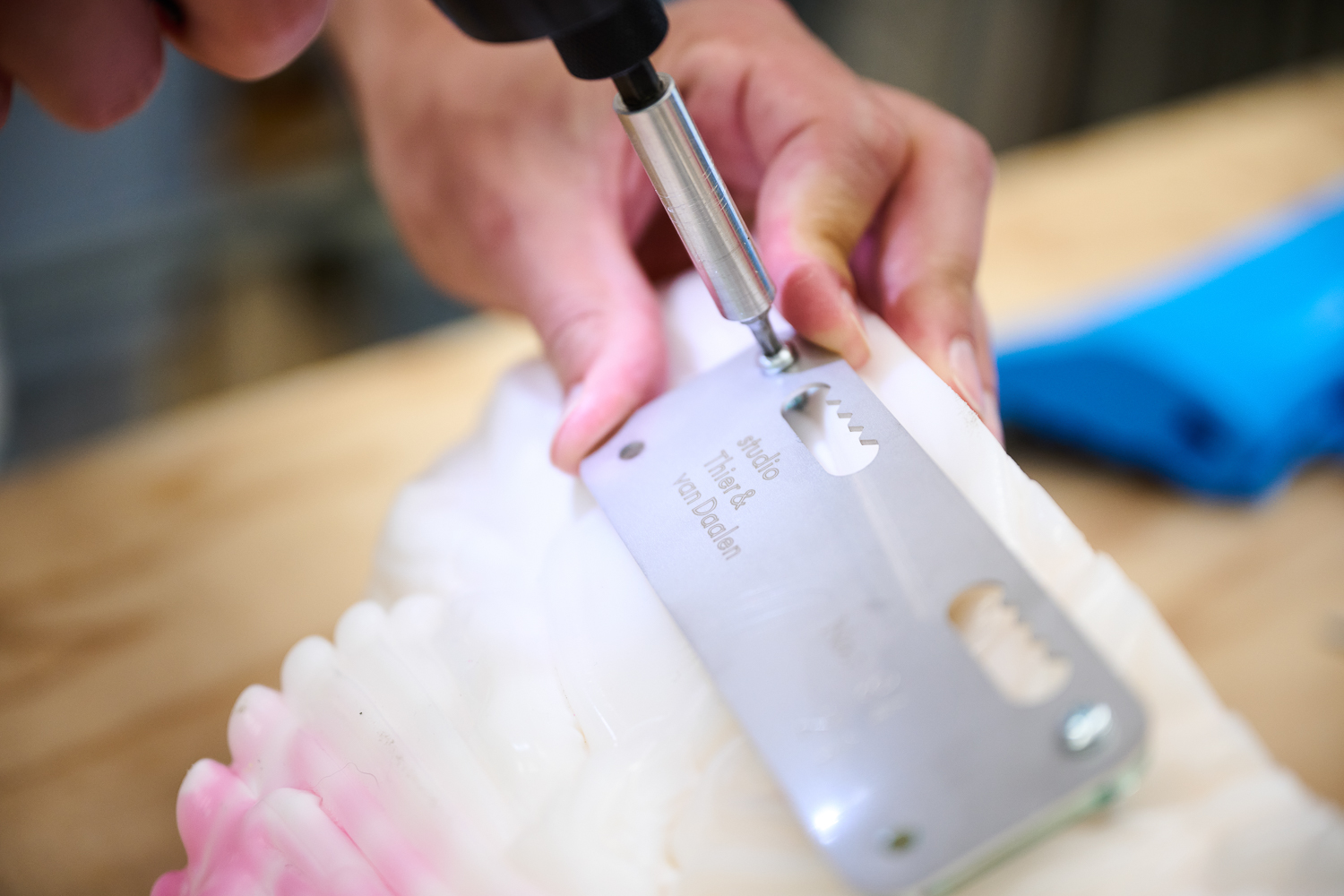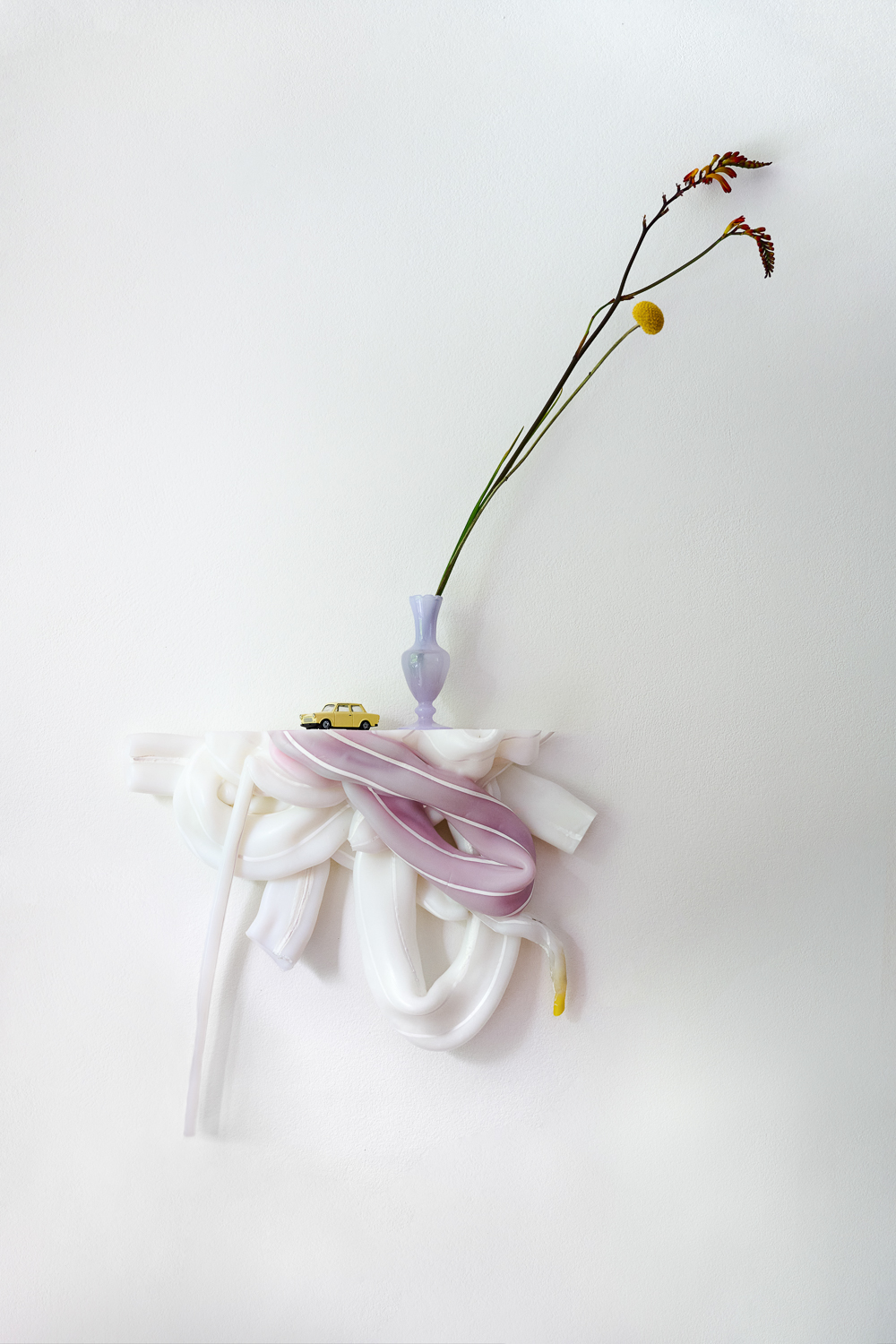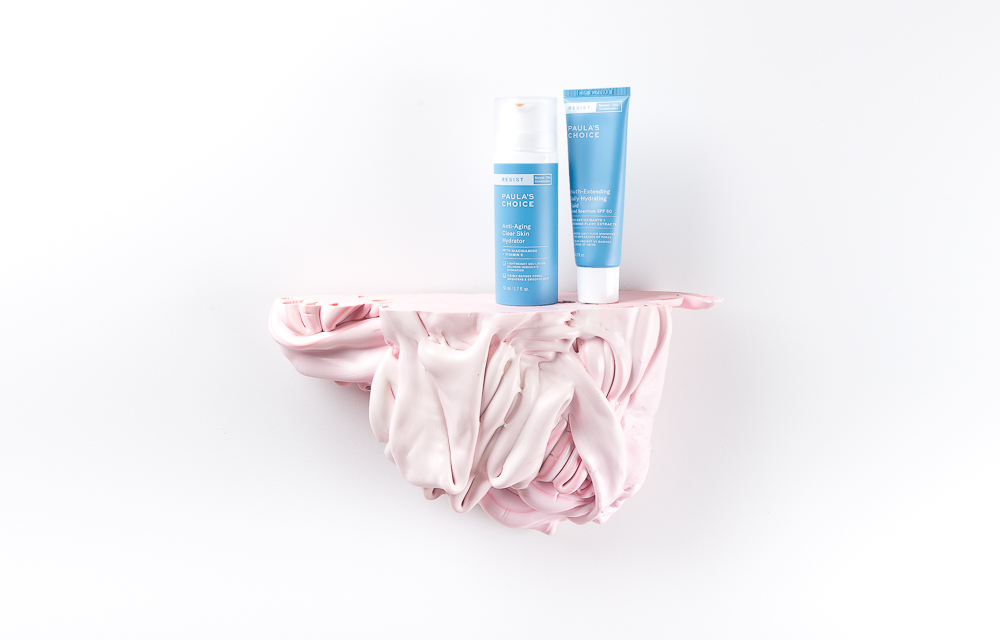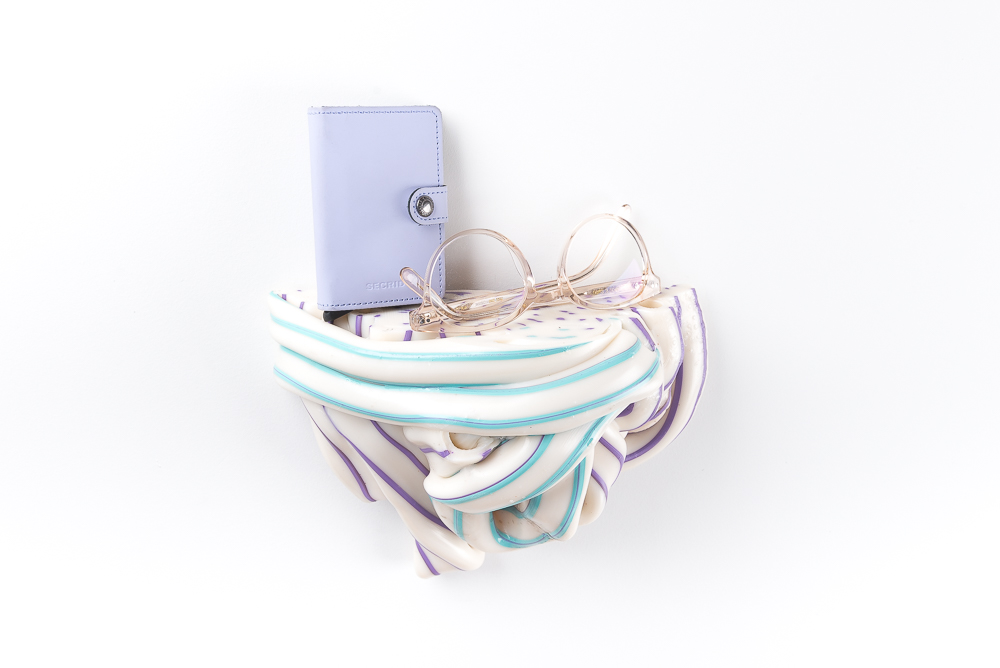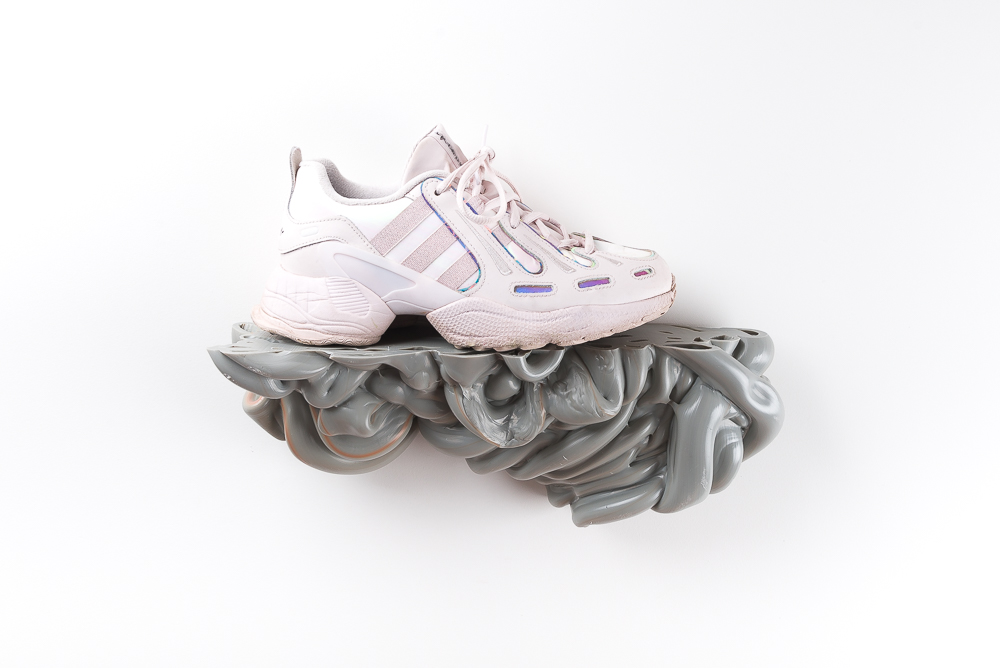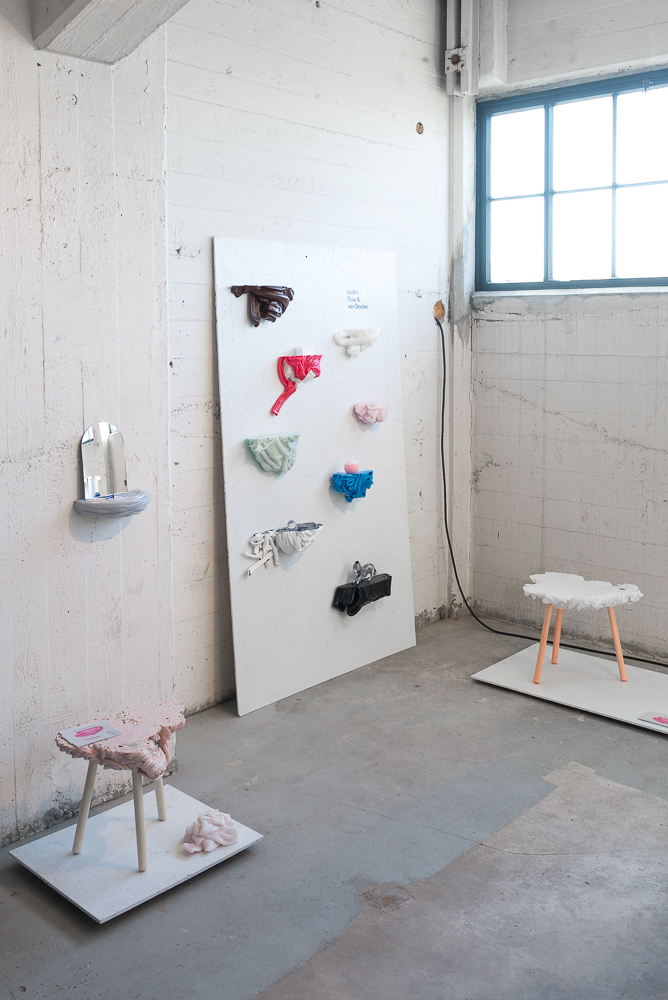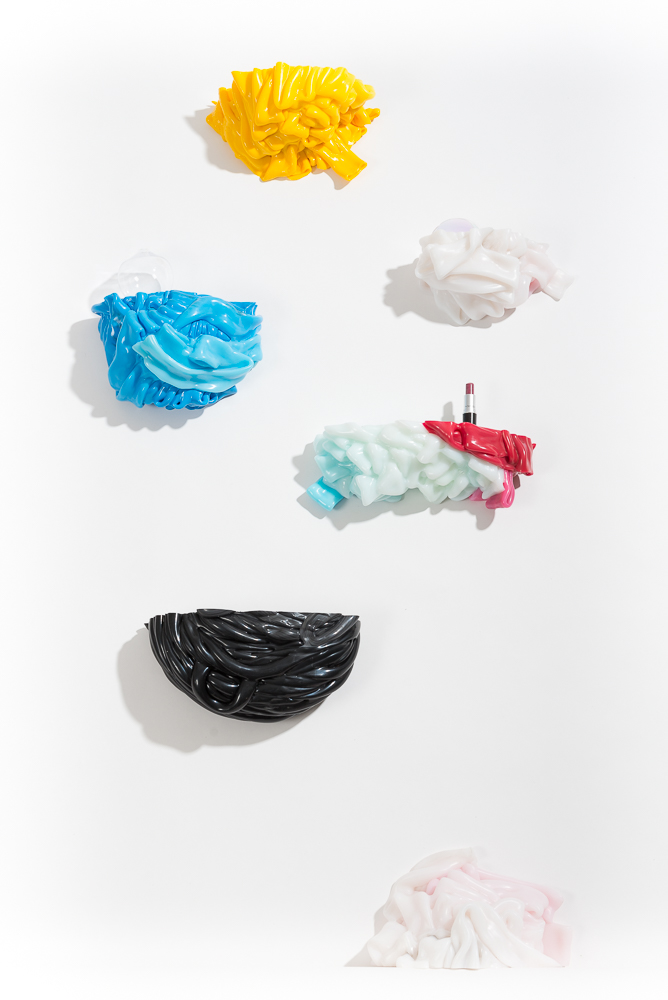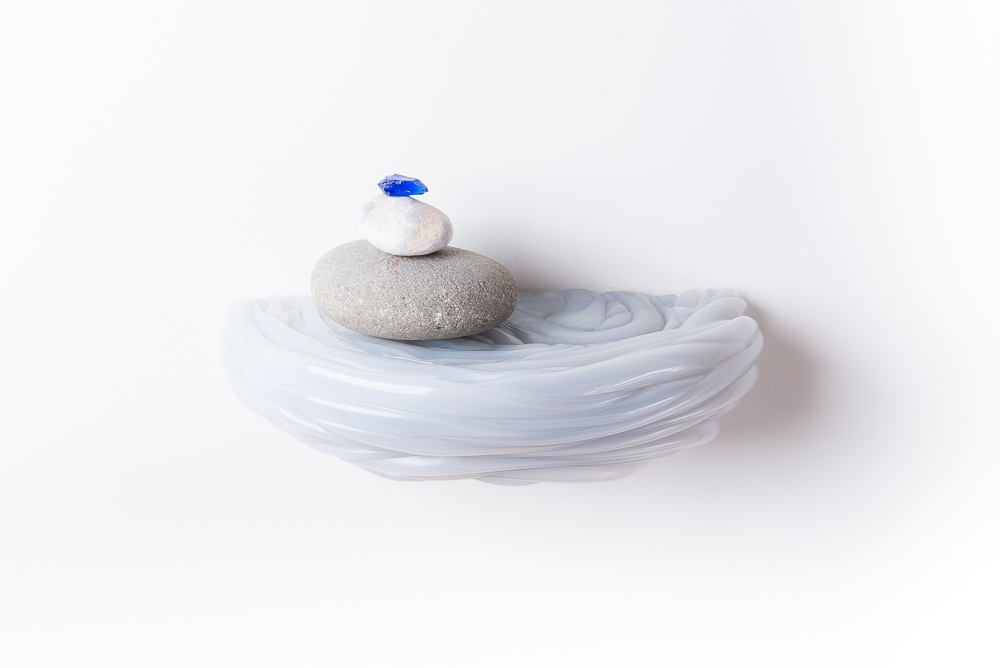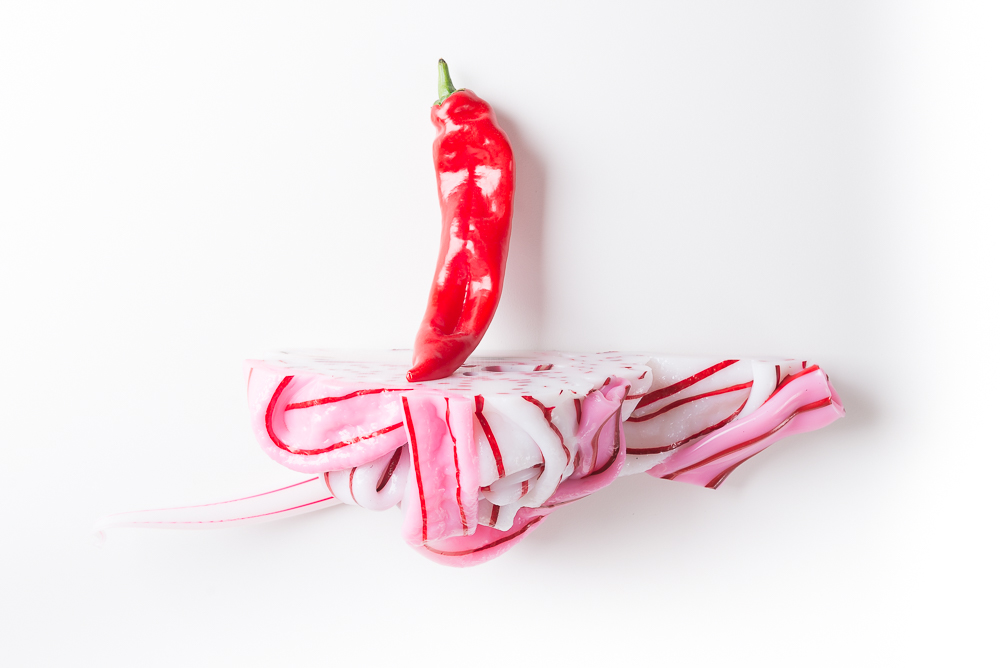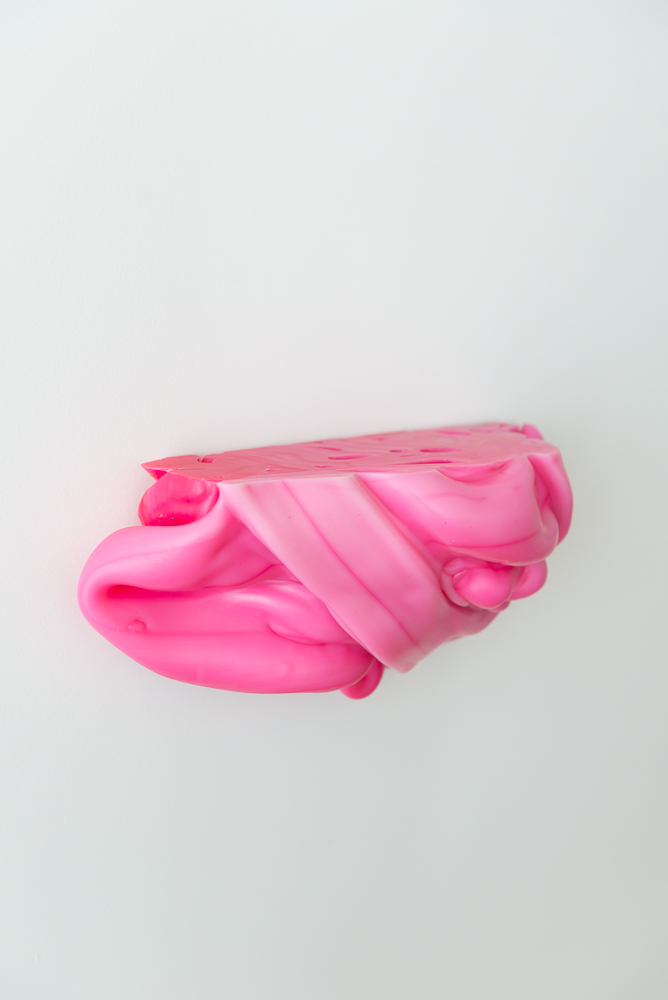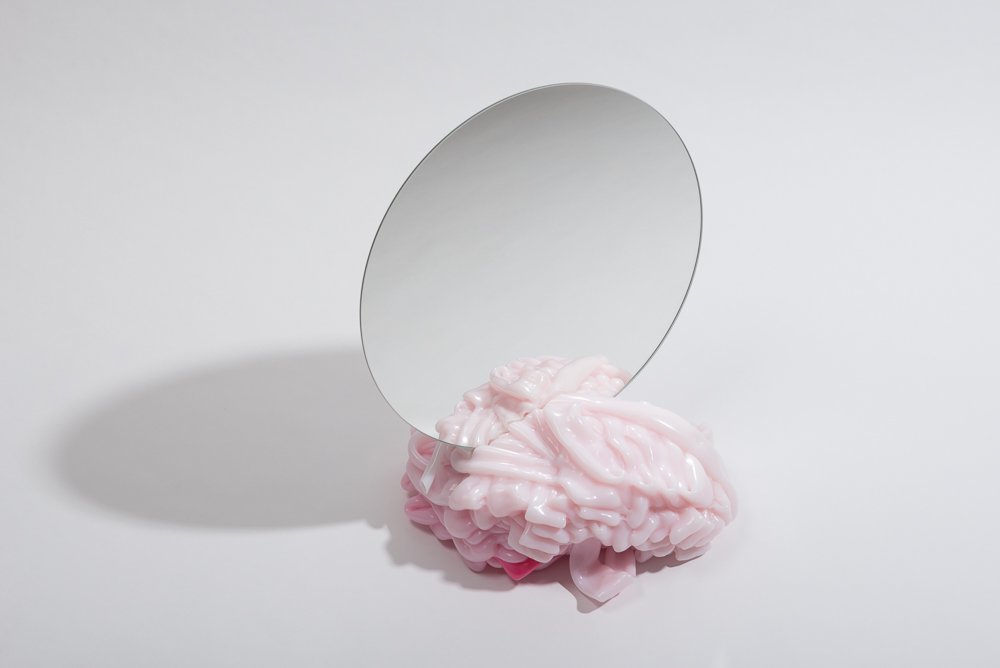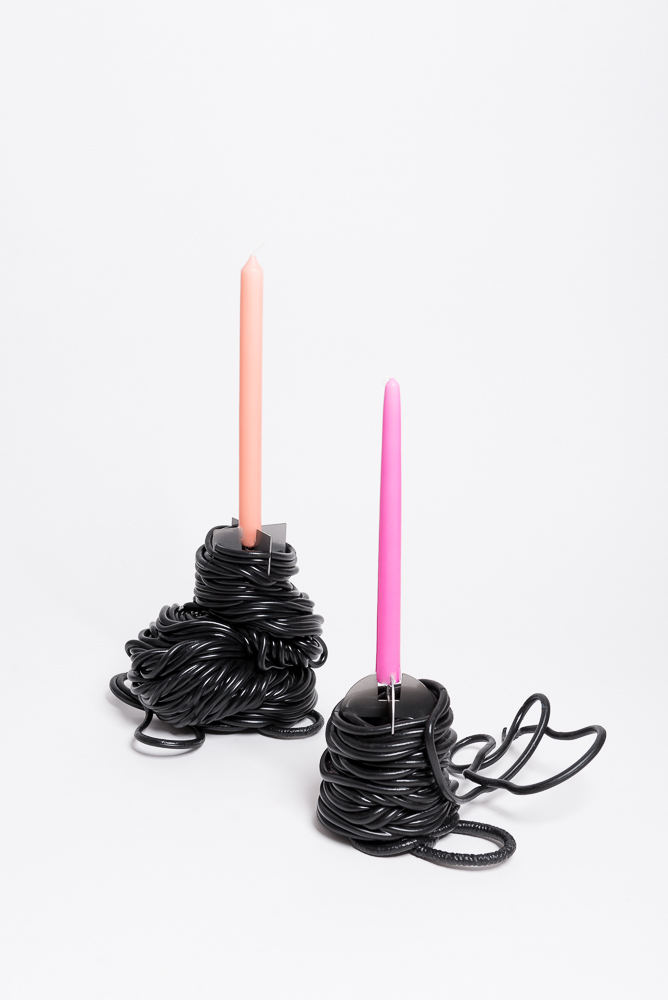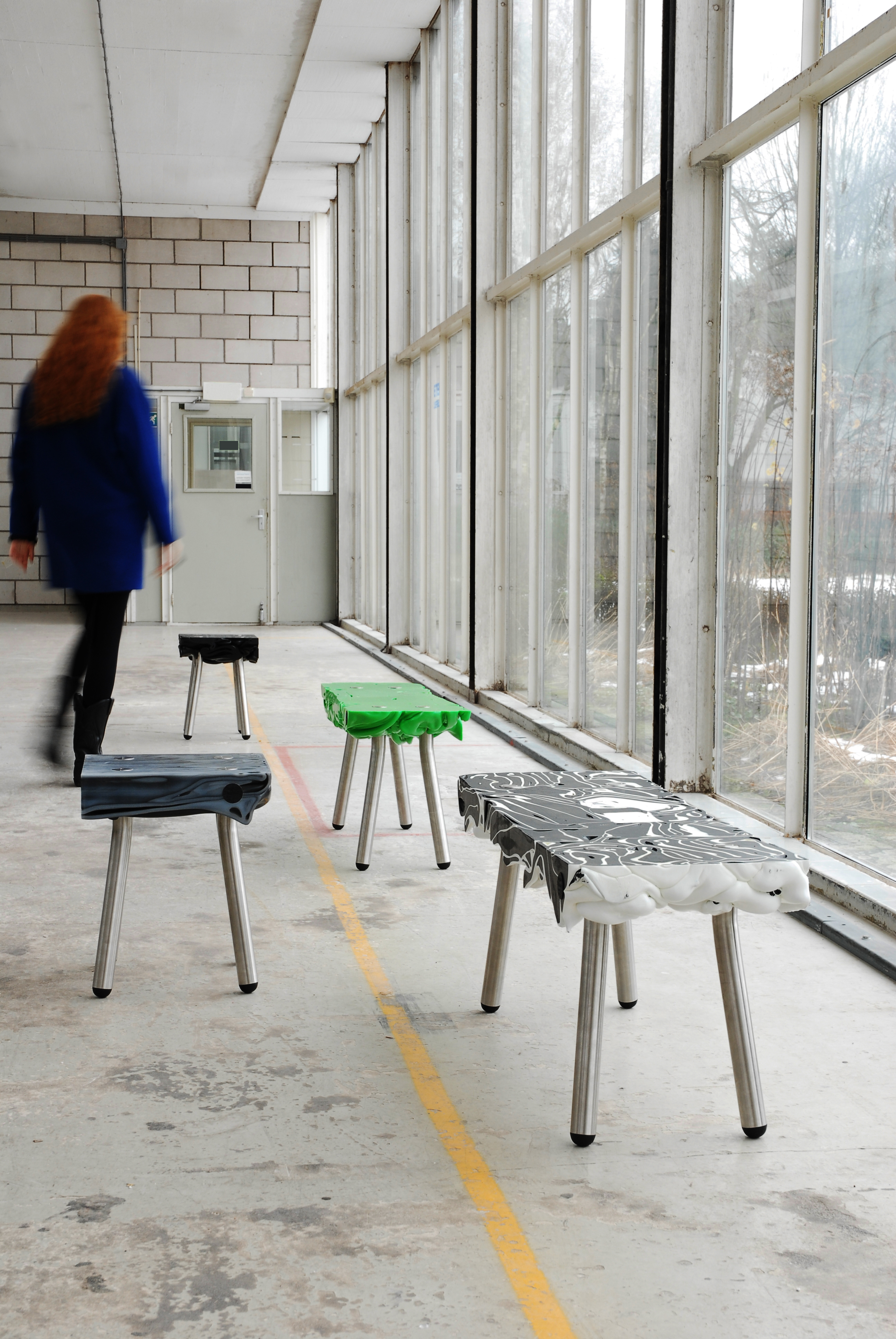Factory overproduction plastics translated into elegant and striking circulair home and garden accessories!
Excavated lumps of industrial plastic waste, translated into a unique and marbled range of accessories for in- and outdoor.
They are fascinated by the unique shapes and beautiful bright colours, found at a plastic processing factory.
These organic shiny lumps triggered them to create must haves, which otherwise would have been thrown away.
They select the most iconic creatures and at the same time they look as a sculptors what they can make out of it. Hence it is such a surprise what is hidden inside, creating an exiting moment when the marbled pattern reveals itself when the piece is cut it open.
Therefor every piece is unique and pieces will never be the same. Some plastic lumps are suitable as a side table, other ones as a candle holders, vessels, mirrors or a wall piece.
They love to be the curator of this waste material.
Our fascination and urge to discover can be traced back into our motto; “Don’t take the world for granted.”
By consciously deal with the sources, their surroundings and impact, we want to realise sustainable designs to cherish, which will last long and more importantly to start a conversation.
This project is a further development of the graduation project of Ruben; Organic Factory in 2010
Made since 2016 in the Netherlands in-house studio – materials: Recycled Polyethylene (overproduction plastics)
For special request, purchase or questions please email us.
For orders go to our : WEBSHOP
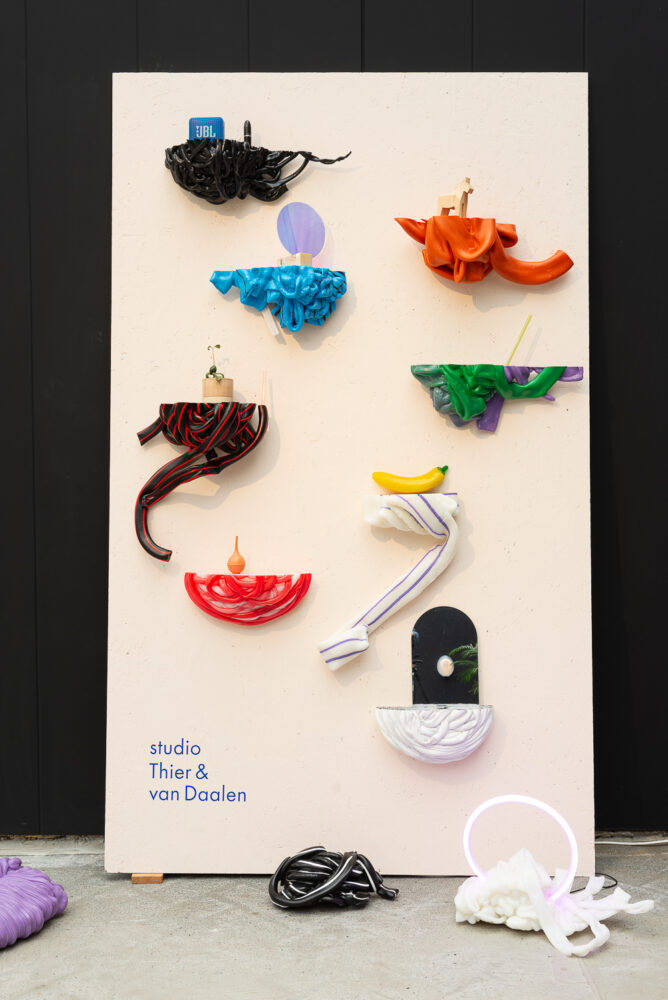
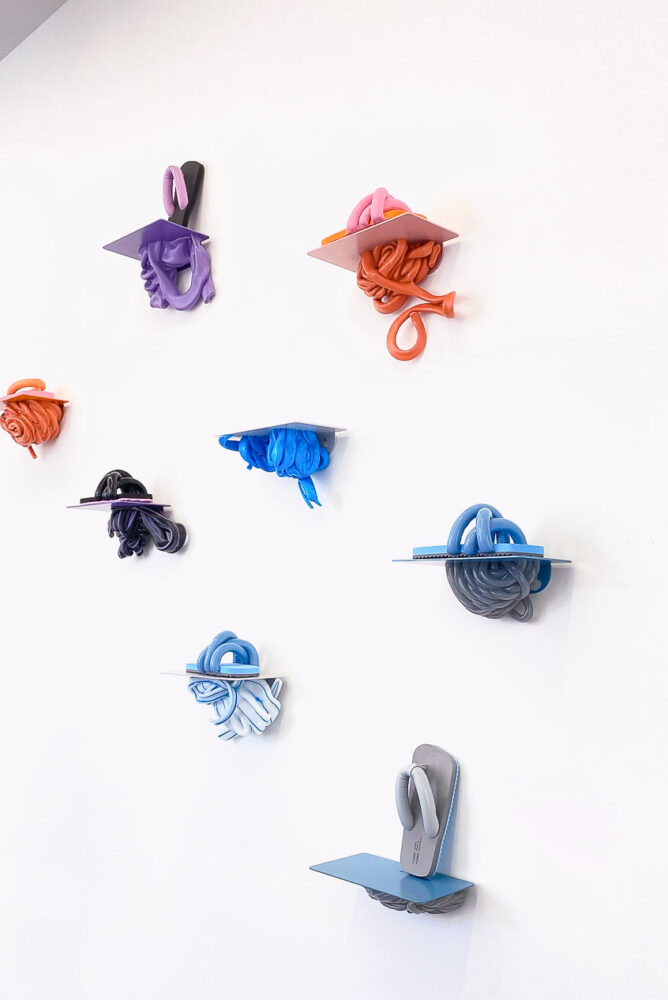
collaboration with shoe brand YUME YUME
During Object Rotterdam 2020
Organic Factory
Graduation project Ruben Thier – Design Academy Eindhoven 2010
Graduation project Ruben Thier – Design Academy Eindhoven ’10
Organic Factory
In a factory, overproduction is common. In between shifts, plastic is dripping on the floor. Instead of this, Ruben Thier created containers for under every extruder. By this, the plastic is collected as an overproduction archive.
From these plastic ‘lumps’ Ruben created benches and stools, named by their machine and week of production, one can see the amount of ‘waste’ is captured in furniture.
The collection is growing, because production never stand still. The furniture comes with a serial number containing date, factory and machine. Now it becomes something, instead of being waste..
Photos: Studio Thier&vanDaalen

